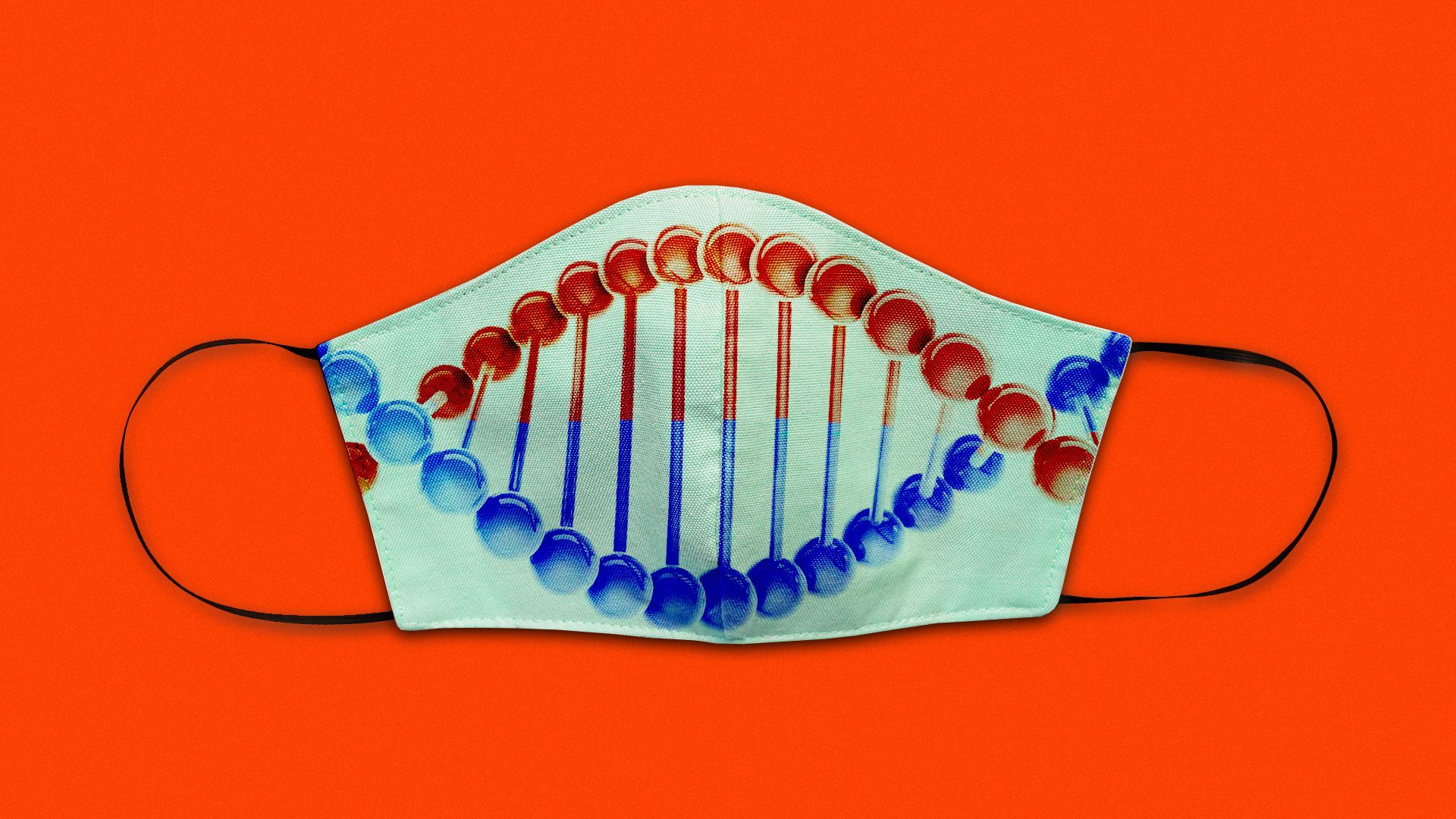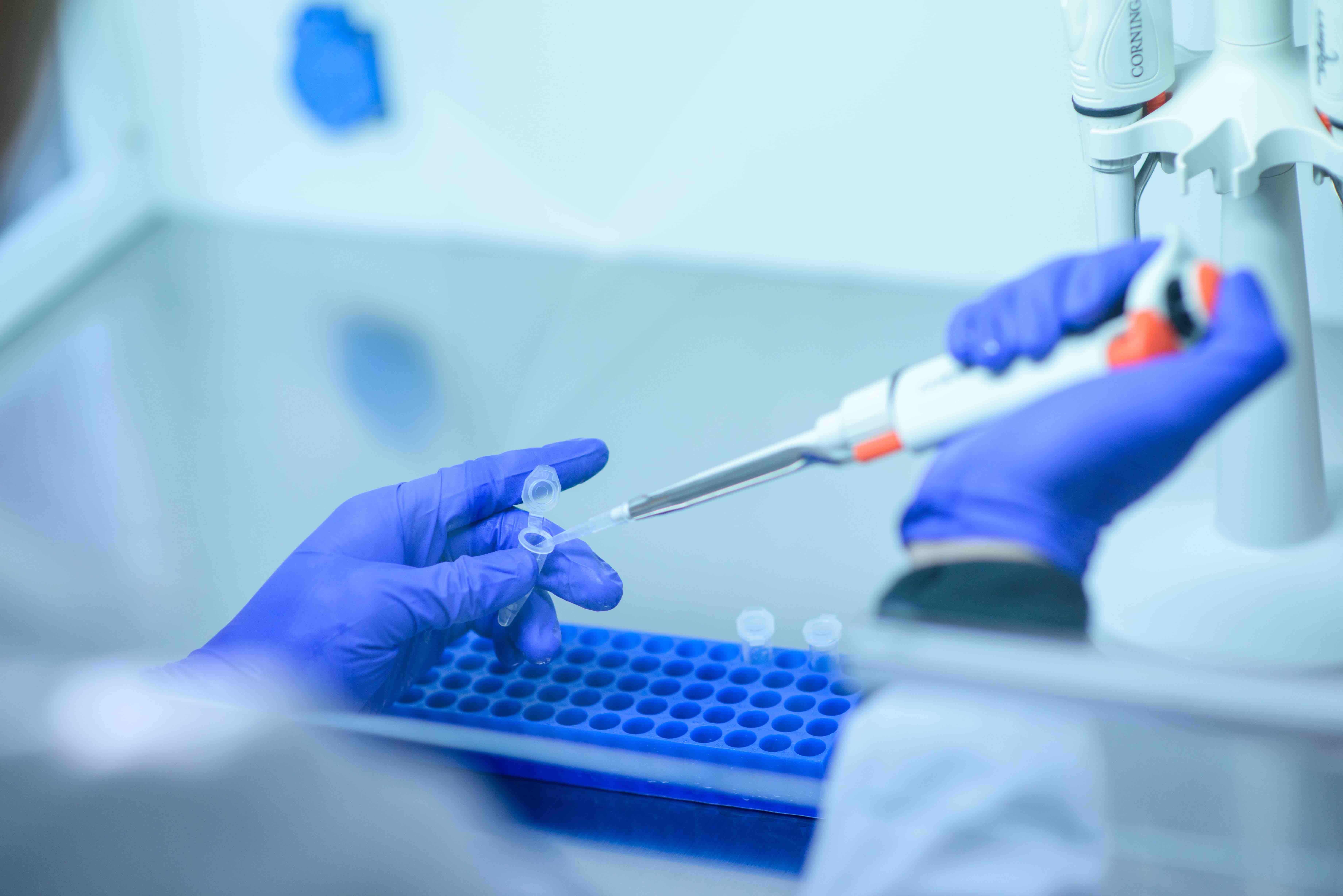| | | | | | | Presented By PhRMA | | | | Vitals | | By Caitlin Owens ·Feb 05, 2021 | | Good morning. Today's word count is 1,137, or a 4-minute read. | | | | | | 1 big thing: Tech troubles snarl seniors' attempts to get vaccines |  | | | Illustration: Aïda Amer/Axios | | | | Seniors are supposed to be among the first Americans to get COVID-19 vaccines, but they're running into a major problem: Signing up for the appointments online, Axios' Ashley Gold and Marisa Fernandez report. The big picture: Millions of older Americans aren't online at all, and many who do have internet access are struggling to find and use the sign-up portals that local health officials have scrambled to set up. Driving the news: "Americans over the age of 50 are unsure how to make or confirm their appointment and are deeply frustrated and increasingly desperate," AARP executive vice president Nancy LeaMond wrote to the House Energy and Commerce committee this week. - "Many do not have access to the internet or do not have experience using online appointment systems."
By the numbers: Though internet use among seniors is on the rise, nearly 22 million seniors, or 42% of the nation's over-65 population, lack broadband access at home, according to a January report from Older Adults Technology Service, a nonprofit affiliate of AARP. - 80% of U.S. COVID-19 deaths have been seniors.
Meanwhile: With cities and counties largely left to stand up sign-up websites on their own, there's no standardized process seniors can follow to register for vaccine appointments. - Unintuitive user interfaces and other tech barriers are driving seniors to simply give up altogether on trying to sign up, said OATS executive director Thomas Kamber.
- And traffic surges have caused some portals to crash or stall, keeping even determined users from being able to register.
"This is the kind of problem technology can solve," Kamber said. "But it requires a minimum level of technology capacity and engagement, which as a country we've failed to create the baseline for among seniors. And we're seeing the consequences right now." Go deeper. |     | | | | | | 2. How CRISPR might halt future outbreaks faster |  | | | Illustration: Annelise Capossela/Axios | | | | Gene-editing may lead the next generation of diagnostics that could help to quickly stop disease outbreaks and pandemics, Axios' Eileen Drage O'Reilly reports. The big picture: New mRNA vaccine platforms, up-and-coming CRISPR diagnostics and other genomics-based tools may be the key to halting future pandemics. - Their "plug and play" characteristics should allow a short turnaround to diagnose a pathogen, contact-trace suspected carriers, and develop a protective vaccine, experts tell Axios.
- The hope also is for CRISPR diagnostics to allow military personnel, clinical doctors or even people in their homes to be able to quickly and precisely narrow down the suspects for mysterious illnesses, says Jean-Paul Chretien, DIGET program manager at DARPA, which invests in breakthrough technologies for national security.
CRISPR diagnostics were on the cusp of a breakthrough before the COVID-19 pandemic started, says Amesh Adalja, senior scholar at Johns Hopkins Center for Health Security. - CRISPR tests are "a promising technology and probably will be accelerated because of COVID and the need for better diagnostic tests that are much more widely distributed in the population," he added.
- A CRISPR diagnostic test can be altered in hours to detect new variants or pathogens.
Multiple CRISPR tests are now under study for COVID-19, including ones using the Broad Institute's Sherlock system or Mammoth Bioscience's DETECTR system, which both received FDA emergency use authorizations in certain circumstances. Go deeper. |     | | | | | | 3. The latest in the U.S. |  Data: The COVID Tracking Project; Note: Does not include probable deaths from New York City; Map: Andrew Witherspoon/Axios Johnson & Johnson applied for emergency authorization from the Food and Drug Administration for its one-dose coronavirus vaccine, per NYT. If authorized, it could begin shipping by early March. The Centers for Disease Control and Prevention found that the coronavirus pandemic disproportionately affects LGBTQ Americans compared to their straight peers, per an analysis released Thursday. Wisconsin Gov. Tony Evers (D) on Thursday issued a new statewide mask mandate almost immediately after the state Legislature voted to repeal his previous order. Researchers are beginning trials examining the effect of mixing and matching doses of different coronavirus vaccines, WSJ reports. |     | | | | | | A message from PhRMA | | Biopharma is committed to being a part of the solution | | |  | | | | As we usher in a new administration and Congress, there are many things on which we can all agree, like building a more just, equitable society. | | | | | | 4. The latest worldwide |  Daily cases of COVID-19 are falling across most of the world, and deaths — which had been climbing globally until late January — are also beginning to decrease, Axios' Dave Lawler writes. The big picture: We can only learn so much from this 30,000-foot view, and there's plenty to fear from the emerging variants. Plus, cases and deaths had been so high that even after climbing down from the peak, we're still pretty close to the summit. - But this is the first time since the pandemic began where cases are falling in basically every region of the world at the same time. On a global level, virtually the only number that is rising is vaccine doses administered.
- And in some places — south Asia for example — there's growing confidence that the worst of the pandemic may be over even before vaccines become widely available.
Dave's thought bubble: Optimism has not aged well during this pandemic, and this chart could look very different in a few weeks' time. |     | | | | | | 5. How COVID is disrupting the drug supply chain | | A team of researchers at the Johns Hopkins School of Public Health has some warnings about the pandemic causing drug shortages — and some ideas on what to do about it, Axios' David Nather reports. Driving the news: COVID is increasing the demand for drugs that are needed to treat patients with the virus — like sedatives and vasopressors, which help patients with low blood pressure, per the report. - It's also shutting down the production of important medications, since China produces active pharmaceutical ingredients and it had to close down some of its factories because of the pandemic.
- And travel bans have created delays that have led to shortages of drugs like propofol, an anesthetic.
The report recommends several steps to address the problems, many of which involve expanding the authority of the FDA: - Adding drugs to its shortage list, which would allow it to use strategies to increase manufacturing.
- Creating quality metrics for manufacturing. (Congress would have to authorize it, since not everyone agrees that the agency has the power to do this.)
- Creating an FDA database of approved manufacturers of active pharmaceutical ingredients.
- Requiring manufacturers to prove they have a stockpile of active pharmaceutical ingredients, and approving new drugs or manufacturing changes more quickly (both of which would have to be authorized by Congress).
The catch: Most of these recommendations rely pretty heavily on giving the FDA more regulatory power. - That might not be a slam dunk with Republican lawmakers for anything Congress has to approve — although that might matter less now that Democrats are in control.
|     | | | | | | 6. The remdesivir windfall | | Gilead Sciences collected $2.8 billion of revenue in 2020 from its IV coronavirus treatment Veklury, also known as remdesivir. The big picture: The pandemic has created a massive business that Gilead simply did not have before, Axios' Bob Herman writes. - The company expects Veklury, a drug shown to have only modest benefits for patients, to generate up to $3 billion this year as the virus continues to spread.
Flashback: Gilead's gross profit margin on remdesivir sales to the government is about 90%. |     | | | | | | 7. Dog of the week | | Archie. Photo: Alison Snyder. Meet Archie, the very lovable companion of Axios managing editor Alison Snyder. - "He is 11, camera shy and downright adorable," Alison writes. He's a cairn terrier mix.
- He doesn't really like to play, but "he will cuddle your legs and feet." He's also worked very hard at helping get his humans through the pandemic.
P.S. My family used to have a cairn terrier, who my mom says had nine lives and was never fully potty trained. I remember him best for when he fell between the back of the couch and the cushions and needed to be rescued. - His scent lingered long after he left us.
Keep sending your dogs, and we'll keep doing dog of the week! |     | | | | | | A message from PhRMA | | We are committed to being a part of the solution | | |  | | | | As we usher in a new Congress and new administration, we can all agree that people need quality, affordable health coverage that works when they need it. - We are focused on solutions that help patients better afford their medicines and protect access to innovation today and in the future.
| | | | | | Axios thanks our partners for supporting our newsletters.
Sponsorship has no influence on editorial content. Axios, 3100 Clarendon Blvd, Suite 1300, Arlington VA 22201 | | | You received this email because you signed up for newsletters from Axios.
Change your preferences or unsubscribe here. | | | Was this email forwarded to you?
Sign up now to get Axios in your inbox. | | | | Follow Axios on social media:    | | | | | |








No comments:
Post a Comment